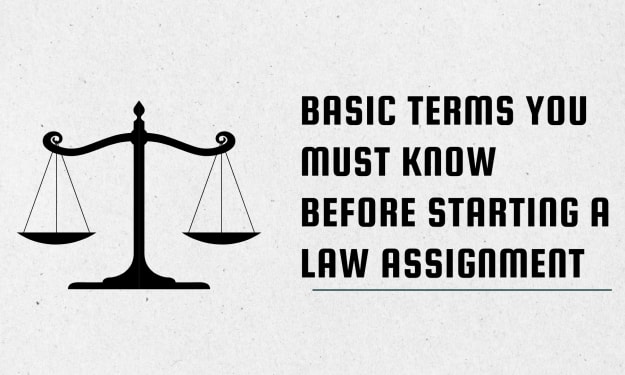Unlocking the Path to Improved Hearing: Tips for Overcoming Hearing Challenges
Read on to learn...

Introduction:
Hearing plays a vital role in our everyday lives, connecting us to the world around us. However, many individuals experience varying degrees of hearing loss, which can significantly impact their quality of life. While seeking professional guidance is essential, there are several strategies and techniques that can help improve hearing ability and enhance communication. In this blog, we will explore practical steps and useful tips to address bad hearing and pave the way towards better auditory experiences.
Recognize the Signs:
The first step in addressing bad hearing is acknowledging the signs and symptoms. These may include difficulty understanding conversations, asking people to repeat themselves frequently, turning up the volume on electronic devices, or feeling isolated in noisy environments. Recognizing these signs early on empowers individuals to take proactive steps towards better hearing.
Consult an Audiologist:
Seeking professional help is crucial for accurate diagnosis and personalized treatment. An audiologist is a qualified specialist who can assess your hearing ability, identify the underlying causes of hearing loss, and recommend suitable solutions. They may suggest hearing aids, cochlear implants, or other assistive devices based on your specific needs.
Utilize Hearing Aids:
Hearing aids are valuable tools that amplify sounds and enhance hearing. These devices come in various shapes, sizes, and technological features to suit different types of hearing loss. Consult with your audiologist to determine the most suitable hearing aid for you. Remember, wearing hearing aids consistently is essential to acclimate your brain to the amplified sounds and gain maximum benefit.
Communication Strategies:
Effective communication is key to overcoming hearing challenges. Employ the following strategies to improve understanding and reduce communication barriers:
a. Face-to-face Communication: Whenever possible, engage in face-to-face conversations to benefit from visual cues such as lip movements and facial expressions, which aid comprehension.
b. Reduce Background Noise: Background noise can make it challenging to hear clearly. Minimize distractions by choosing quieter environments and using noise-canceling devices or apps that reduce background noise during conversations.
c. Request Clarification: Don't hesitate to ask for clarification when you don't understand something. Politely request the speaker to rephrase or repeat the information to ensure accurate comprehension.
d. Advocate for Yourself: Inform others about your hearing difficulties and provide suggestions to facilitate effective communication. Encourage friends and family members to face you directly while speaking and speak clearly and at a moderate pace.
Assistive Listening Devices:
Apart from hearing aids, various assistive listening devices can further enhance hearing capabilities. These devices include personal amplifiers, TV listening systems, captioned telephones, and loop systems. Consult with your audiologist to explore the most suitable options for your specific needs.
Practice Active Listening:
Active listening involves focusing on the speaker, observing their non-verbal cues, and concentrating on the conversation. Avoid multitasking or engaging in distracting activities while conversing. Regular practice can improve your ability to discern speech and comprehend complex auditory information.
Protect Your Ears:
Prevention is better than cure, and safeguarding your hearing is paramount. Take proactive measures to protect your ears from excessive noise, such as wearing earplugs or earmuffs in noisy environments, using volume-limiting headphones or earbuds, and maintaining a safe distance from loudspeakers at concerts or events.
Stay Informed and Engaged:
Stay updated with the latest advancements in hearing technology and treatment options. Participate in support groups or online communities to connect with individuals facing similar challenges. Sharing experiences, tips, and emotional support can be invaluable on your journey towards better hearing.
Conclusion:
Although dealing with bad hearing can be challenging, adopting the right strategies and seeking professional help can significantly improve your hearing abilities. By recognizing the signs, consulting an audiologist, utilizing hearing aids and assistive devices, employing effective communication strategies, and protecting your ears, you can regain confidence and actively engage in the world around you. Remember, every step you take towards better hearing is a step towards a more fulfilling and connected life
Bad hearing can have a profound impact on individuals, affecting various aspects of their lives. Communication becomes a significant challenge as understanding conversations becomes difficult, leading to feelings of frustration, isolation, and withdrawal from social interactions. Simple activities like talking on the phone, participating in group conversations, or enjoying music can become sources of stress and anxiety. Bad hearing can also hinder professional growth and educational pursuits, as important instructions or information may be missed. Additionally, it can impact personal relationships, as loved ones may struggle to communicate effectively, leading to misunderstandings and strained connections. The emotional toll of bad hearing cannot be underestimated, as individuals may experience feelings of embarrassment, low self-esteem, and depression. Overall, the impact of bad hearing extends beyond the physical realm, affecting social, emotional, and psychological well-being.
if your struggling with bad hearing click here





Comments
There are no comments for this story
Be the first to respond and start the conversation.